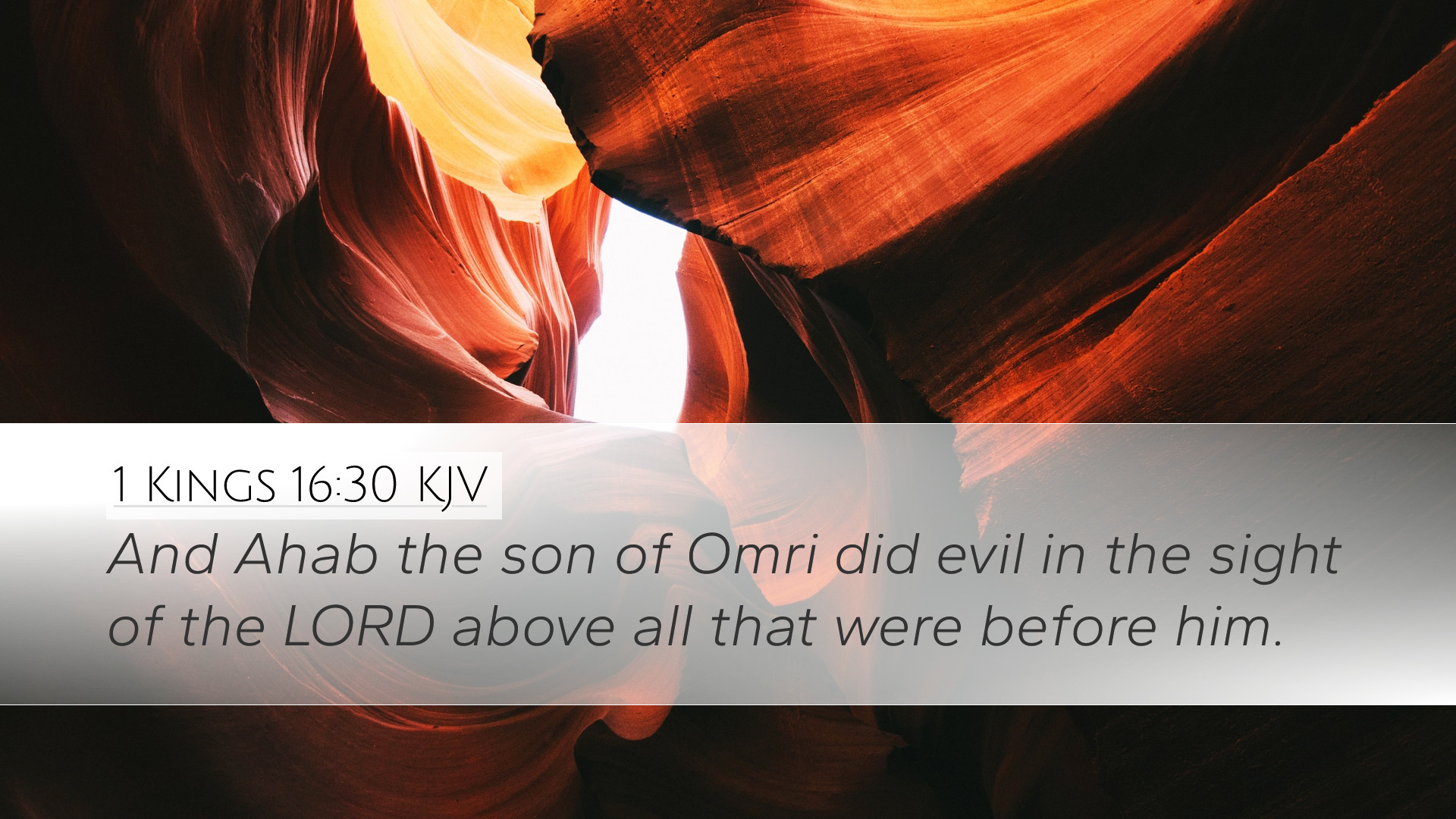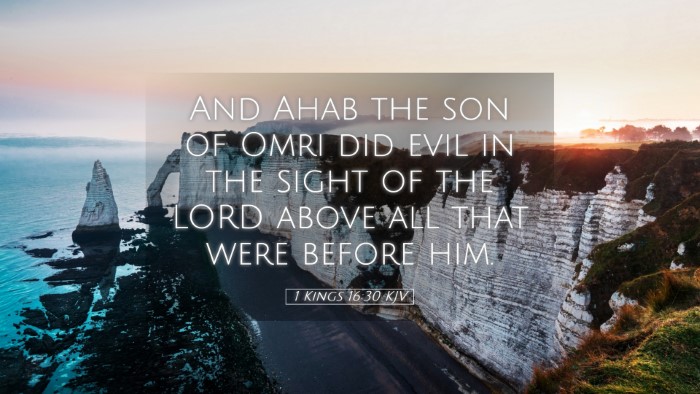Commentary on 1 Kings 16:30
Bible Verse: "And Ahab the son of Omri did evil in the sight of the LORD above all that were before him."
Contextual Overview
This verse introduces Ahab, the seventh king of Israel in the northern kingdom after the division of the unified kingdom under Saul, David, and Solomon. Ahab's reign is pivotal in illustrating the moral decline and idolatry that characterized Israel during this period.
Character of Ahab
Matthew Henry observes that Ahab's transgressions are not merely personal failings but a profound national calamity. He states that Ahab "did evil in the sight of the LORD above all that were before him," indicating that his wickedness exceeded that of previous kings.
Albert Barnes elaborates that Ahab's reign marked a significant transition in Israel's leadership, emphasizing the impact of Ahab's choices on the nation's spiritual trajectory. His introduction of Baal worship represents a tragic departure from Yahwistic worship.
The Implications of Idolatry
Ahab's actions reflect the serious consequences of idol worship, which had become deeply entrenched in Israelite society. Adam Clarke notes that Ahab’s marriage to Jezebel, a Phoenician princess, further entrenched Baal worship, as she propelled idol worship to unprecedented levels within the kingdom.
- Impact on Worship: Ahab’s embrace of Baal necessitated a further move away from the worship of Yahweh, undermining Israel’s covenantal relationship with God.
- Cultural Influence: The Canaanite practices that accompanied Baal worship infiltrated not only religious practices but also societal values, leading to moral decay.
Historical Context
Ahab serves as a representation of the political and spiritual malaise that afflicted Israel during the monarchy. Henry highlights that this period was characterized by instability and the threat of foreign invasion, which Ahab's idolatry only exacerbated.
Barnes underscores that Ahab's choices were not isolated but were symptomatic of a broader trend of unfaithfulness among the Israelite kings, ultimately leading to the nation’s downfall.
Ahab's Legacy and Lessons for Today
The legacy of Ahab is one of warning against the allure of power and the temptations of idolatry. The narrative of Ahab invites contemporary readers to reflect on their own lives and the influences they allow to shape their faith and actions.
- Warning Against Compromise: Ahab illustrates the dangers inherent in compromising one's faith for political gain or social acceptance.
- Consequences of Idolatry: The story serves as a reminder of the destructive nature of idolatry, which can lead to a collective moral collapse.
- Call to Faithfulness: Ahab's narrative calls individuals and communities to remain faithful to God and to challenge practices and beliefs that lead away from the truth of the Gospel.
Conclusion
The evaluation of Ahab's reign as outlined in 1 Kings 16:30 provides profound insights into the dangers of idolatry and the importance of maintaining fidelity to God. As noted by Clarke, this historical account encourages believers to reflect deeply on their spiritual commitments and to seek a genuine relationship with the Lord that transcends cultural and societal pressures.


